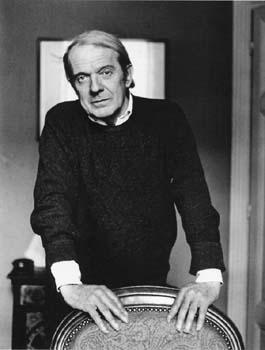 Some scans of a book containing an interview with the Big D can be read here.
Some scans of a book containing an interview with the Big D can be read here. Of particular interest to C*S*F are his thoughts on the relationship of the press with authors and intellectuals. A part of the diatribe Deleuze unleashes while speaking of "the new philosophers": Journalism has discovered an autonomous and sufficient thought within itself. This is why, if we pursue this line of argument to its limit, a book is worth less than the newspaper article written about it or the interview that comes after it. Intellectuals and writers, even artists, are thus forced to become journalists if they want to conform to the norm. [Tired of transcribing, read a crop from the scan..]

 In an very interesting development, Reuters has opened a
In an very interesting development, Reuters has opened a 

